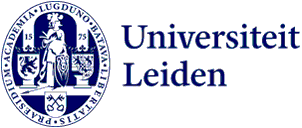
'Punishment of international cartels by competition authorities needs to be better coordinated'
When an international cartel is exposed, the parties involved often face punishment by more than one authority for the same behaviour. There is very little international coordination in the actions of these authorities. Pieter Huizing claims that this can, and must, change. PhD defence on 10 March 2021.

Huizing works as a lawyer specialising in competition law at international law firm Allen & Overy in Amsterdam. In 2012 he was seconded to Allen & Overy in Washington where he worked on international cartel investigations. 'I went there to work for John Terzaken, an American competition law lawyer who was the former Head of Criminal Enforcement at the Antitrust Division of the Department of Justice. In this position, Terzaken had gained experience on how international cartel investigations are carried out and how the coordination between authorities could be improved. Together, we wrote a short article on this topic and this inspired me to study the topic more closely.'
Huizing’s research considers the parallel punishment of international cartels. There are various authorities that independently impose a punishment for the same cartel practices. 'The European, American, and Japanese competition authorities often start off working together in international cartel investigations. But the nature and the timing of the punishment then takes a separate route and often there is no coordinated decision on the level of the cartel penalty.' Huizing’s growing fascination with the topic culminated in PhD research conducted at the Europa Institute of Leiden University. His PhD thesis is composed of six articles that have been published in international journals in the field of competition law.
As goods and services are increasingly offered and traded globally, cartel agreements between competitors also have a global nature more often. Huizing: 'One concrete example of an international cartel is the case of maritime transport of motor vehicles. This is a highly specialised and capital-intensive industry in which five powerful market players compete with each other on a global scale. It turns out that over a period of around 15 years, these market players had made secret deals in cafés and restaurants on fixing prices and market allocation. No fewer than eleven different competition authorities investigated this cartel, each imposing their own separate punishment. The total amount of the penalties came to more than 1.2 billion dollars.'
Huizing first studied how international cartels are punished, the approach chosen by authorities when setting the boundaries of their own litigation and punishment, and to what extent punishment by one authority overlaps punishment by another authority. 'The study includes a quantitative analysis of international cartels, case studies on specific examples of cartel enforcement, and comparisons of regulations and rulings in various countries. Taking a legal theory perspective, I then proceeded to study the effect of parallel punishment on the proportionality of the overall punishment of international cartels. Finally, I analysed what authorities could do, and should do, to pursue an overall proportional punishment.’
Huizing’s research confirms that there is currently little international coordination aimed at limiting multiple punishment of the same overarching cartel behaviour. Global cartels are therefore regularly punished in more than five jurisdictions, sometimes even in more than ten. In addition, international cartel punishment is characterised by the accumulation of individual penalties imposed on the basis of purely national policy, without taking account of international sanctions. The overall proportionality of the total punishment, both from the perspective of retribution as well as deterrence, is not taken into consideration.
Retribution and deterrence
Huizing believes that overall proportionality in the punishment of international cartels can only be achieved if authorities consider the extent to which the objectives of retribution and deterrence have already been achieved by sanctions imposed elsewhere. 'My research contains concrete recommendations on this. Ideally, authorities would ensure mutual coordination in legal proceedings, the envisaged overall punishment and the breakdown of this punishment into individual fines. But that’s wishful thinking when it comes to international cartel enforcement. A more realistic scenario is having each litigating authority take a conscious decision about the effectiveness and proportionality of imposing an additional fine, on top of a punishment imposed elsewhere.'
Huizing hopes his research will attract more attention for the parallel punishment of international cartels. 'The articles have been noted in other publications by scholars, lawyers, policy makers, and international organisations. I hope my research will contribute to the increasing attention on this issue in the international community of competition authorities.'
Text: Floris van den Driesche
Contact
